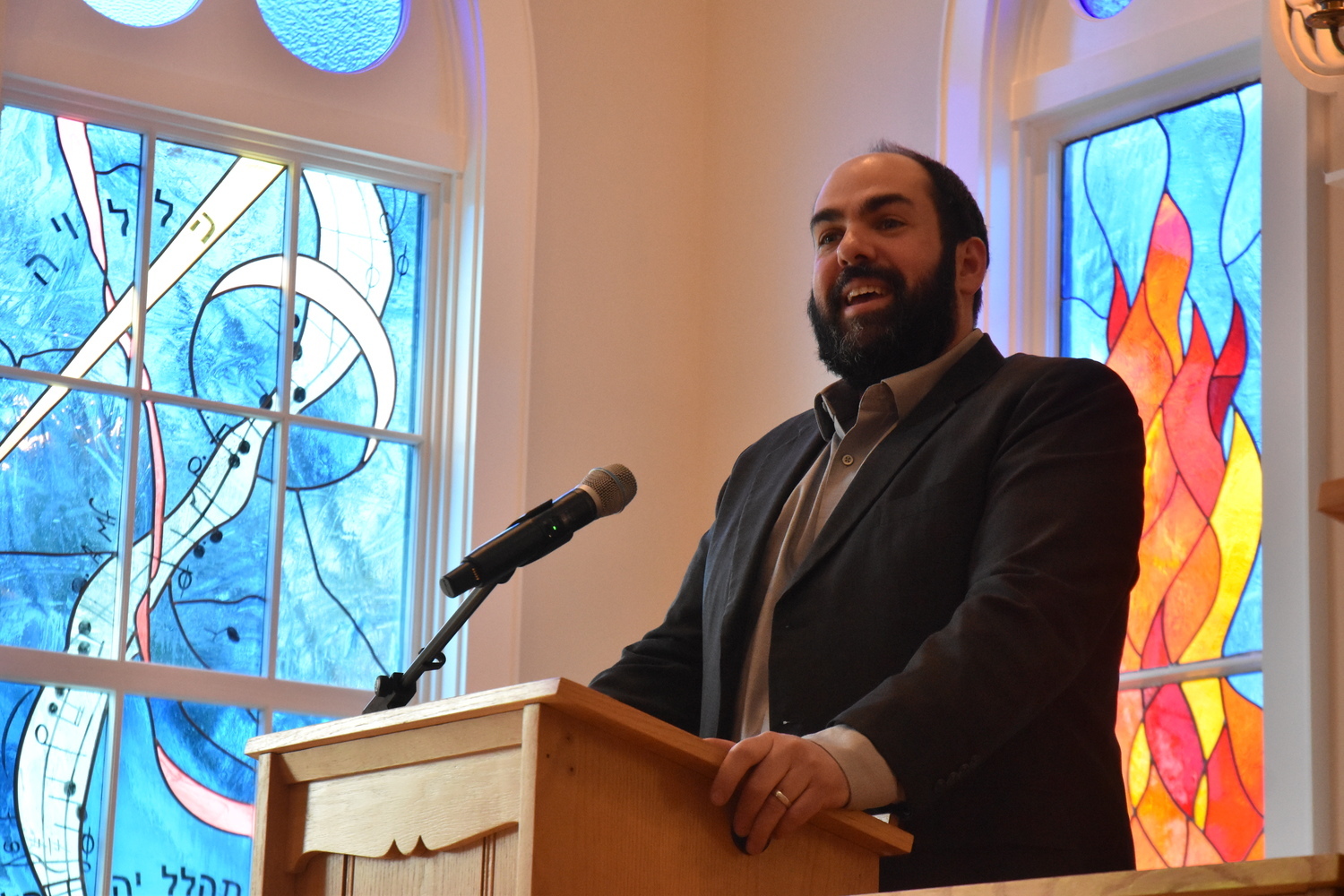
If I am being honest, I feel very honored to write this “Message of Hope” — and, at the same time, I am also overwhelmed.
To inspire hope in a world of violence and pain that seems intent on exhausting any trace of it feels like an almost Sisyphean task. Even if I should somehow succeed in my charge, I worry that it is only a matter of time before the next human calamity befalls us and the proverbial boulder rolls back down the hill, crushing our unrealized dreams in its path.
Even defining the word “hope” these days is fraught with agita. By its nature, it is a nebulous and subjective concept. What I may hope for this holiday season may not be what you are hoping for. The evils and injustices that feel most immediate and painful to me — the ones that eat away at my soul and rob me of my optimism — may not be the same concerns that keep you up at night.
In the end, how can we speak about hope, if we can’t even agree on its definition or its purpose?
The last time I was asked to write this piece was in 2015, only a year and a half out of Rabbinical school. Although I had survived my first year in the “real world” and had been warmly embraced by my new community, I still woke up every morning feeling like an impostor. I still feel that way sometimes.
Then, as now, I knew my community looks to me for a way forward, waiting on my “words of wisdom” to cut through the morass. And yet I feel those words catching in my throat.
Right now, it feels almost impossible to speak about hope while the world burns. And yet, that is precisely what I — no, what we — must do.
Because now, more than ever, we need hope. We need hope more than anything else in the cosmos. Hope is our oasis in the desert; the tiny ray of light in an otherwise terrifying and ever-swirling abyss of fear and desperation. It is both a guidepost and a destination, a question and an answer. It is an idea embedded in the collective heart of humanity and the ultimate goal of our existence.
In a sermon titled “Shattered Dreams,”* the Reverend Dr. Martin Luther King Jr. taught: “We must accept finite disappointment, but never lose infinite hope.”
This simple, yet deeply profound message has been a salve on my heart of late. In the face of entrenched adversity and stagnating progress, Dr. King reminds us that it is natural to feel despondent sometimes. It is even necessary to accept the moments of disappointment and regression that are all but inevitable.
And at the same time, he leaves no room for self-pity or fatalistic complacency. Hope is no rare commodity, it is as (seemingly) infinite as the sands of the shore or the stars in the sky. Dr. King’s wisdom calls us to remember that when it comes to hope, it is never a question of finitude, only a question of perception. Disappointments may narrow our field of vision, but our faith pushes back. If we only open our eyes and hearts, we see hope shining in all directions, just waiting to be embraced and to inspire us to build a better existence for all.
This holiday season, I pray that all of us take the time to renew our sense of possibility and our belief in the unending and unbounded optimism that we call “hope.” Let us remember that our purpose in this life is to build, not to destroy; to love, not to hate; to embrace and not to push away.
And perhaps most important of all, to never, ever, lose hope!
Happy Holidays!
* King, Martin Luther Jr., “Shattered Dreams,” in “A Testament of Hope: The Essential Writings and Speeches of Martin Luther King Jr.,” edited by James Melvin Washington (HarperOne, 1986).